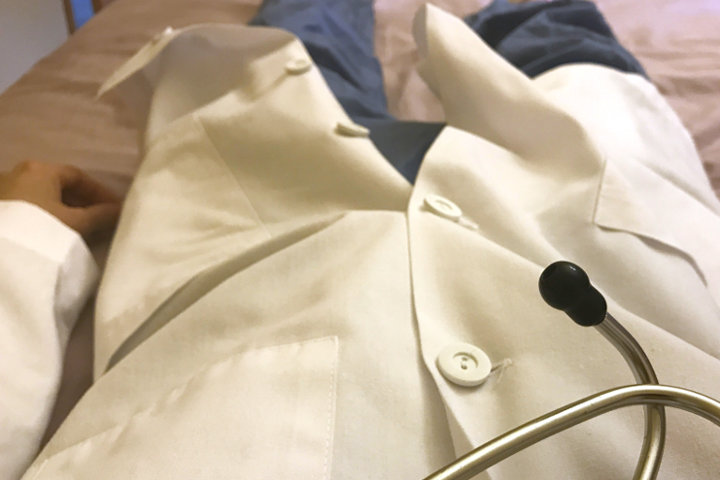How to Create a Night Shift Sleep Schedule

Anyone scheduled for third shift has probably asked what's the best sleep schedule for night shift workers.
There's no doubt that the 22 million Americans working the night shift face challenges. For starters, they're fighting biology. The body's sleep/wake cycle is known as the circadian rhythm, and it's controlled by a region in the brain known as the hypothalamus. Light during the day helps cue your body to remain awake while darkness prods your hypothalamus to release melatonin, the so-called "sleep hormone."
Shift work essentially throws your circadian rhythm off gear. The result is that many people working the graveyard shift suffer from "shift work disorder" that causes sleep patterns to get misaligned. This can lead to issues like insomnia, excessive sleeping, or even falling asleep on the job.
That's the bad news. The good news is that you can create a sleep schedule to help survive third shift. Here's how:
Before Your Shift
- Start changing your sleep schedule several days before your shift. Match your schedule more and more closely to the one you'll have to work–for instance, if you're working midnight to eight, start going to bed later and then waking an hour or two later each day.
- Nap before your shift. Just be aware that you'll enter deep sleep if you nap for more than 40 minutes. This can be restorative, but you'll need a good hour or so to become alert again.
While You're on the Clock
- Try to take a power nap. A quick 30 minute snooze can make a big difference.
- Seek out light. Bright light cues your brain to be alert.
Use caffeine wisely. Some coffee or tea at the beginning of your shift can help keep you energized— just taper off after that so the caffeine has time to leave your system by the time you get home.
After Your Shift
- Minimize exposure to bright light. Wear sunglasses on the commute home and draw the curtains as soon as you get in.
- Have a bite to eat. A healthy meal or snack will help keep hunger pangs at bay while you get needed zzz's.
- Reserve 7 to 9 hours for sleep. Tell friends and family members you're totally off limits during these times. (And definitely turn off your phone— the blue light it emits tricks your brain into staying awake.)
- Consider natural sleep remedies. There are lots of drug-free ways to help you sleep. A few popular ones include meditation, journaling, and natural sleep aids like melatonin, chamomile tea, and valerian root extract. More than one million people also swear by SleepPhones®, the world's first and most comfortable headphones for sleeping. With flat speakers in a soft headband, SleepPhones® let you comfortably fall asleep while listening to nature sounds, soft music, audio books, or anything else that relaxes you.
Establishing a night shift sleep schedule will take some time. But it becomes easier over time as your body adjusts. Before long, you may just be a true night owl.
